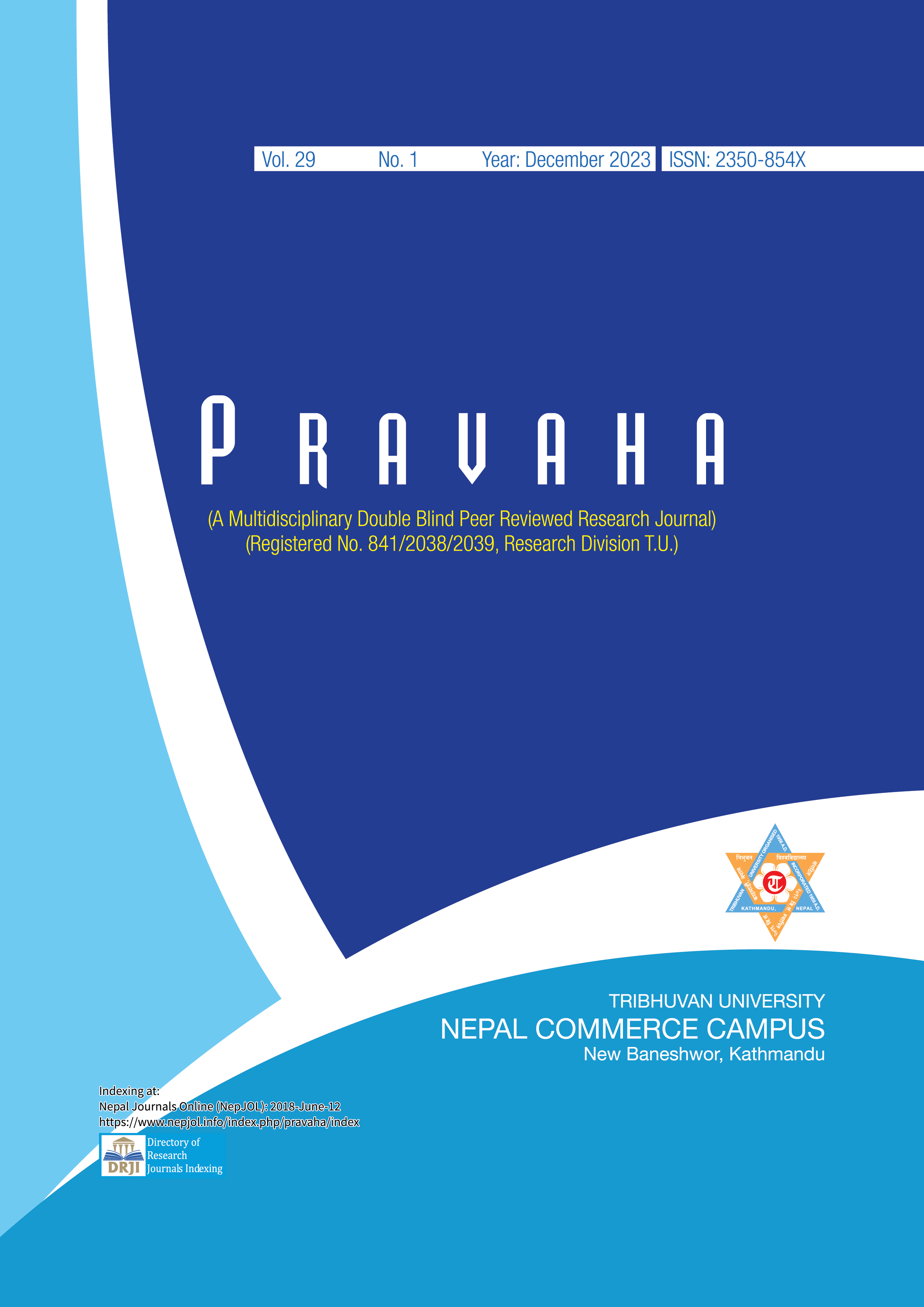Climate Change Adaptation Strategies of the Communities in Bagmati Province, Nepal
DOI:
https://doi.org/10.3126/pravaha.v29i1.71409Keywords:
Climate change, community resource, livelihoods, vulnerability, adaptationAbstract
The vulnerability to climate change provides critical insights within academic discourse. This study examined climate change adaptation strategies in Bagmati Province, focusing on the characteristics of respondents and their access to socio-economic services, community resources such as land, water, forests, and energy sources, and the impacts of climate change on livelihoods. A quantitative approach and cross-sectional survey design were employed to collect data from 204 households in the villages of Syaphrubeshi, Dobhan, Langtang, and Mundu (Langtang Rural Municipality) and Krishnanagar, Kharikuna, Basantpur, and Inarbaruwa (Madi Municipality). The main ethnic groups in Langtang are the Tamang, Sherpa, and Gurung, while Brahmin and Tharu dominate in Madi. Agriculture, remittances, business, and tourism were identified as key income sources, with many households receiving remittances in the past year. While most households in Rasuwa have piped drinking water, residents in Chitwan primarily use tube wells. LP gas, firewood, and dung ranked as the primary cooking fuels. Challenges such as road connectivity, market access, education, health services, and agricultural support were more pronounced in Langtang than in Madi, with most households walking over 1 km for these services. Water resources are increasing in the Inner Tarai due to tube wells but decreasing in mountain regions, where forest resources are also in decline. The study's community resource index, climate change vulnerability index, and adaptation index varied according to settlement types, with findings grounded in both empirical and theoretical evidence. These results offer valuable insights for policymakers and stakeholders at various levels.
Downloads
Downloads
Published
How to Cite
Issue
Section
License
© Nepal Commerce Campus, TU
Authors are required to transfer their copyright to the Nepal Commerce Campus, TU.




